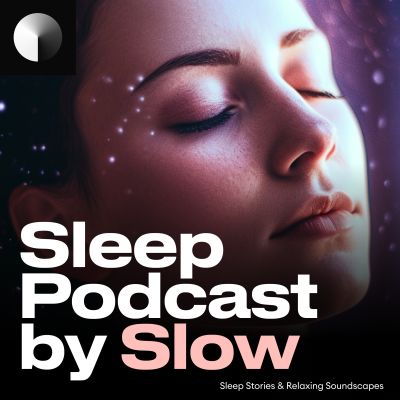Rate our podcast???? Try our sleep app: https://slow-app.com Become a pro podcast subscriber: https://anchor.fm/sleeppodcast/subscribe On this sleep podcast, you will find: relaxing nature sounds, sleep sounds, binaural beats, deep sleep sounds, rain sounds, ocean sounds, ocean waves, white noise machines, thunderstorms, waterfall sounds, baby sleep sounds, tinnitus masker sounds, jungle, forest sounds, relaxing music, and guided sleep meditations. You spend 1/3 of your life sleeping so do it well.
http://www.sleepmeditationpodcast.com
CAMP FIRE SOUNDSCAPE: Transport yourself to a calm sleep meditation outdoors by a crackling fire. Requested by Taylor Messmer via Google Forms.
Like tonight's sleep sounds?
Join the waitlist for our upcoming sleep app here:
https://sleepmeditationpodcast.com/app
Tonight's question - What type of sound do you miss on this podcast? Leave a comment in the review????
Here is your episode Taylor Messmer.
If you want your own customized sleep sound, leave us a review. You can also leave a private review here: https://www.asmrsleeptriggers.com/feedback
OPEN LONG SLEEP PLAYLISTS ON SPOTIFY HERE:
Rain Sound
Ocean Sounds
Ambient music for sleep
Thunderstorms for sleep
Waterfall and river sounds
Whale sounds and underwater sounds
White noise sleep and tinnitus masking
Singing bowls for mindful meditation
https://www.asmrsleeptriggers.com
Open sleep playlists on Apple Music.
HERE ARE SOME TIPS FOR BETTER SLEEP.
TIP 1. SET A BEDTIME ALARM AND STICK TO A CONSISTENT SLEEP ROUTINE. Your body’s internal clock, a.k.a. your circadian rhythm plays a key role in regulating your sleep-wake cycle. This clock tells your body when it’s time to wake up in the morning and when to start unwinding at the end of the day.
TIP 2. KEEP YOUR BEDROOM COOL. Lowering your body temperature will help you sleep faster. That's why a bedroom with a temperature of 18°C or 64.4°F is ideal.
TIP 3. GO OUTSIDE FIRST THING IN THE MORNING. Get at least 60 minutes of natural daylight exposure first thing in the morning. Light is the strongest stimulus for regulating a person’s sleep-wake schedule. It doesn’t matter if it’s cloudy or sunshine, the key is to trick the brain into a new morning routine. Don’t put shades on because it will diminish the light reset function in your body clock.
TIP 4. DON'T DRINK COFFEE OR CAFFEINE AFTER NOON. Caffeine has a half-life of six hours. Caffeine is also what we call a psychoactive stimulant. For some people, a single cup of coffee in the morning means a sleepless night.
TIP 5. BE PHYSICALLY ACTIVE. Regular aerobic exercise like walking, running, or swimming provides three important sleep benefits: you'll fall asleep faster, attain a higher percentage of restorative deep sleep, and awaken less often during the night.
TIP 6. LIMIT DAYTIME NAPS AFTER 3 PM. Prolonged napping can disrupt your natural sleep cycle and prevent you from feeling tired enough to fall asleep.
TIP 7. EAT HEALTHY AND AT REGULAR TIMES Food is just as powerful a trigger as light is. Avoid large meals and beverages at late night hours. Recent studies have shown that your eating schedule is correlated with how your body clock works.
TIP 8. CLEAN YOUR BEDROOM AND TURN OF THE BLUE LIGHT DEVICES. Remove the television, telephone, and any other devices that radiate blue light from the bedroom. Blue light can affect your sleep and potentially cause sleep diseases.
